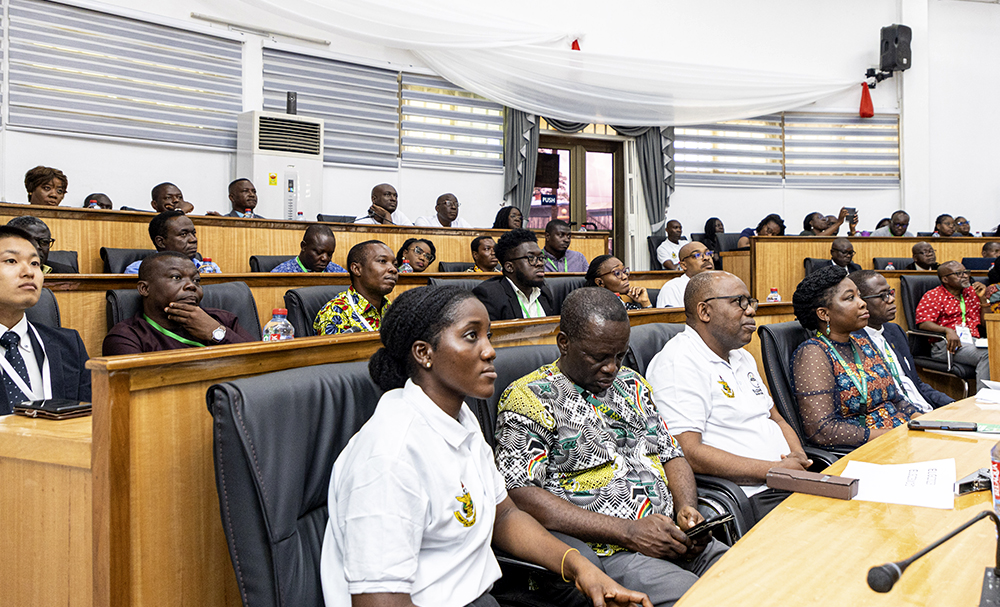The E-Learning Centre of the Kwame Nkrumah University of Science and Technology (KNUST), Kumasi, has hosted the maiden E-learning Ghana Conference on the theme: "Education without Borders: Digitalising to Improve Accessibility, Quality, Inclusivity, and Sustainability." The two-day Conference was held on 6th and 7th July 2023 at the Amonoo-Neizer Conference Centre.
The Conference brought together about One Thousand-Two Hundred (1200) online and Two Hundred and Fifty (250) in person participants, comprising scholars, pioneers, and thought leaders in the e-learning field. The primary objective was to translate all discussions and insights into tangible outcomes, actionable plans, and a renewed commitment to breaking down barriers that hinder access to education, enhancing the quality of the learning experience, fostering inclusivity, and ensuring the sustainability of efforts.
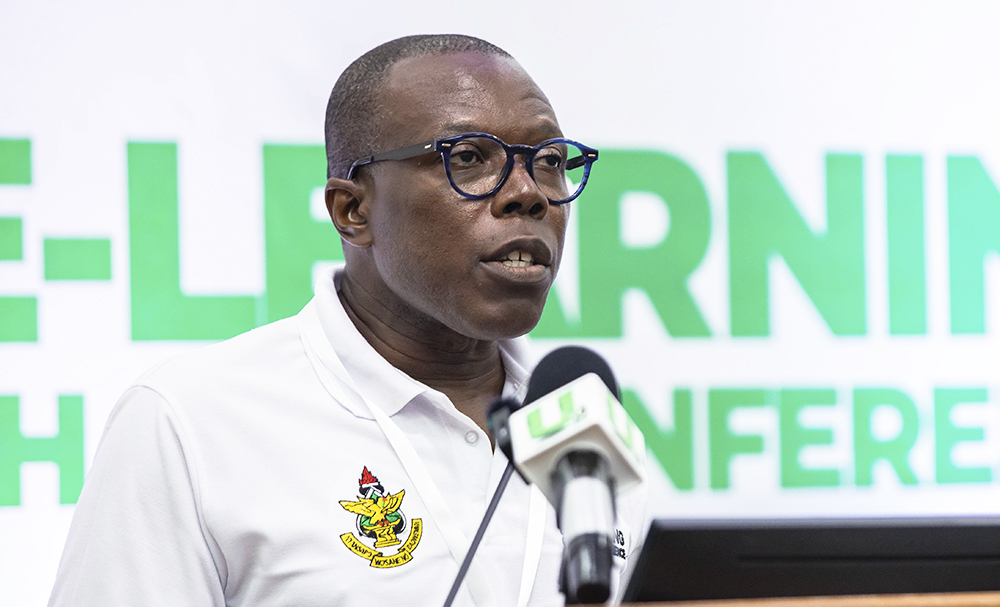
In his speech, the Pro Vice-Chancellor, Professor Ellis Owusu-Dabo, highlighted how the digital revolution, accelerated by the COVID-19 pandemic, propelled KNUST into an educational renaissance, defying the once-limiting factors in education. He described the e-learning journey as exciting, with the advantage of breaking down traditional barriers, reimagining possibilities, and creating education that knows no boundaries. Professor Owusu-Dabo emphasised KNUST's commitment to promoting cutting-edge e-learning technologies and pedagogical strategies to facilitate teaching and learning, knowledge creation, and community impact. He encouraged other institutions to embrace this new approach to education for the benefit of both staff and students.
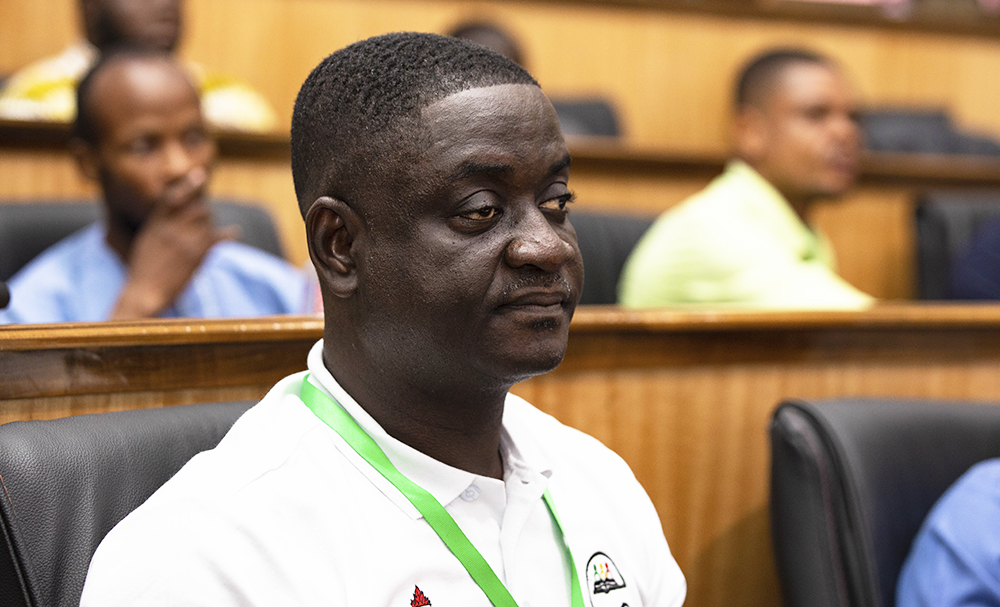
Professor Eric Appau Asante, the Director of the E-Learning Centre, stressed the importance of collective efforts, partnerships, and innovation in unlocking the true potential of e-learning. He noted that digital transformation in education has rapidly taken hold in Ghana, necessitating the scaling up of tertiary institutions to meet current demands in teaching and learning. He highlighted the significant role played by the adoption of Massive Open Online Course (MOOC) platforms in this transformation. The E-Learning Ghana Conference, therefore, serves as a milestone in reshaping education on a large scale, bringing together stakeholders from the tertiary e-learning landscape to collaborate and explore the potential of e-learning in addressing educational gaps. Professor Appau Asante assured KNUST's commitment to creating a community of practice among e-learning practitioners and stakeholders in the country.
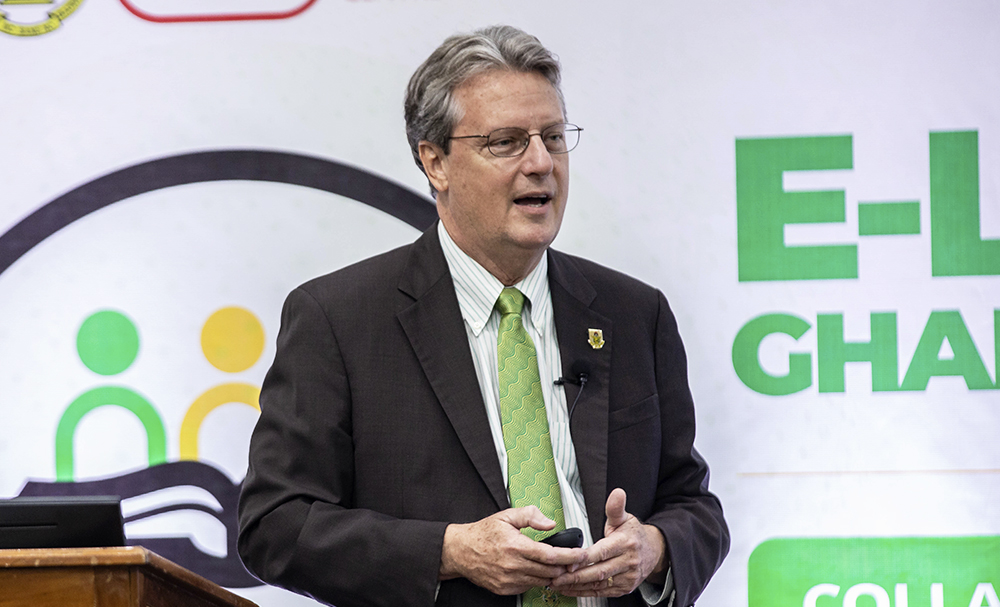
In his keynote address, Dale Johnson, the Director of Digital Innovation for the University Design Institute at Arizona State University, celebrated KNUST's recognition by Times Highers Education’s 2023 Impact Rankings as the best university in the world for the provision of quality education (SDG 4). He highlighted that every discipline has the potential to utilise e-learning technologies and stressed the need to balance technology and pedagogy. He stated the importance of approaching e-learning from a student-centred point of view, using markers such as enrichment, enhancement, extension, and expansion to improve accessibility, quality, inclusivity, and sustainability. Mr. Johnson underlined factors essential for the success of e-learning in any environment: leadership support, faculty development, and instructional design services and infrastructure.
The Minister for Communications and Digitalisation for the Republic of Ghana, Honourable Ursula Owusu-Ekuful, highlighted various government interventions implemented to support e-learning, including the establishment of a national learning management system for both online and offline learning in collaboration with the Ministry of Education. She also mentioned an education access programme. The Minister emphasised that sustainability requires the collaboration of all stakeholders and expressed her commitment to creating an ecosystem that empowers learners.
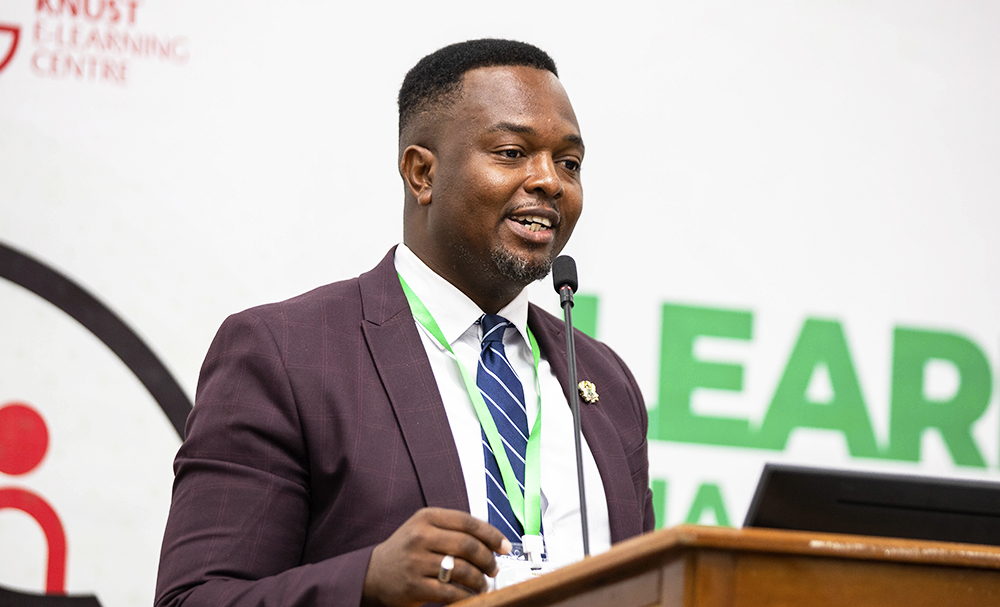
The Director of the Centre for National Distance Learning and Open Schooling (CENDLOS), Mr. Nana Gyamfi Adwabour, in his address outlined the contributions of CENDLOS to distance and online education in Ghana, especially at the Basic and Senior High School (SHS) Levels. These contributions include the provision of Learning Passport/Minecraft Education in Basic and SHS levels, the expansion of teaching and learning content on iBox and iCampus, the production of virtual labs and simulations for STEM subjects, and the establishment of Strategic Regional Service Centres to support Learning Passport and iBox initiatives.
The Conference included oral presentations addressing the sub-themes of accessibility, quality, inclusivity, and sustainability, as well as a poster presentation and exhibition. Also, a panel discussion titled "Generative AI-Language Models in Tertiary Education: Empowering Student Creativity or Undermining Academic Integrity?" was conducted by experts including Dr. Emmanuel Ahene, Dr. Linda Amoako Banning, Dr. Cyril Boateng, and Dr. Rose-Mary Mensah.








